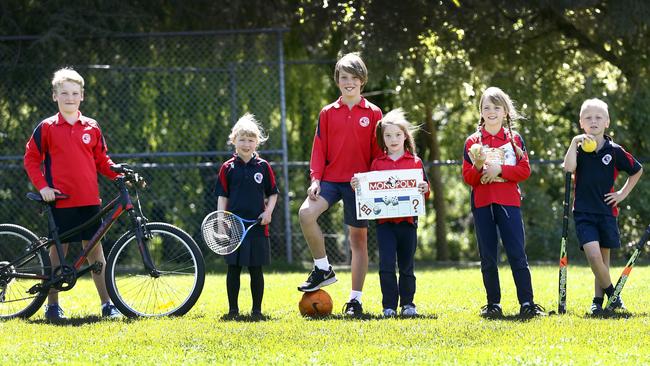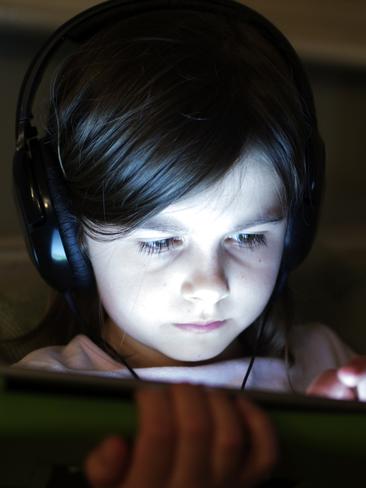Tassie school leads ‘no-tech’ revolt
A TASMANIAN school is leading the way in countering digital dependence among young people by challenging families to go “no-tech” or “low-tech” for a month.

A TASMANIAN school is leading the way in countering digital dependence among young people by challenging families to go “no-tech” or “low-tech” for a month.
Students and parents have been encouraged to take pledges to either limit or forgo recreational technology — including television, computers, ipads and mobile phones — throughout November.
The ambitious “Govember” project, which starts at South Hobart Primary School on Tuesday, is aimed at encouraging children and families to be more physically active and connected to each other instead of technology.
The school’s project comes as health experts warn about the mental and physical effects of screen addiction in children and young people, ranging from anxiety to short-sightedness.
One of the nation’s leading mental health services for schools has applauded the concept of Govember.

The Principals Australia Institute, which delivers the mental health program KidsMatters and MindMatters to schools, said the idea was a first and other schools should follow the lead.
“It would be great if more schools were doing this,” said Victoria Ninnes, a mental health worker and senior project officer with the institute.
“This should be mandated across the country ... kids and families need a reminder there is life outside of technology,” she said.
Ms Ninnes said the project would not only help screen-overloaded children but also their parents, who needed to be role models for real connections with friends and outside activity.
She warned that the saturation of online games, information and social media was resulting in children suffering anxiety and depression.
A dependence on technology could also disrupt sleep and lead to poor exercise and diet habits.
South Hobart Primary School’s “Govember” pledges allow children and families to set their own challenge level.
They can choose to go without technology devices for the whole month, certain days of the week, or allocated amounts of time on certain days.
South Hobart Primary School principal Cathy Franz said the aim of Govember was to encourage people to think about their families’ use of recreational technology
Ms Franz said teachers would also look at ways of limiting the use of technology in the classroom that was not for educational purposes.
While the internet was an important research tool, Ms Franz said there was also a lot of material worth avoiding.
She said educators wanted children to engage mindfully with what they were viewing on screens, rather than spending long periods staring at screens.
“It’s about the mindful use of screens — of choosing to do what you’re doing rather than just passively doing it,” she said.
The benefits of less screen time, and more focused use of technology, were many: more time for families to interact, more time spent exercising, more time to read and engage face-to-face with friends.
As part of the project, students are raising money by asking for sponsorship for the pledges.
The money will be put towards books for the school, with reading encouraged during Govember.
The explosion in the use of digital technology among young Australians has prompted warnings from optometrists, after a survey showed 99 per cent are concerned about the number of young people with digital-induced eye problems.

Hobart optometrist Andrew Hogan, who is a national director with Optometry Australia, said he was seeing more children with eye problems that appeared to be linked to too much time glued to screens.
“We are seeing more short-sightedness and at a younger age,” said Mr Hogan, whose practice specialises in children.
He said there were also increasing rates of eye strain and dry eyes.
Originally published as Tassie school leads ‘no-tech’ revolt



